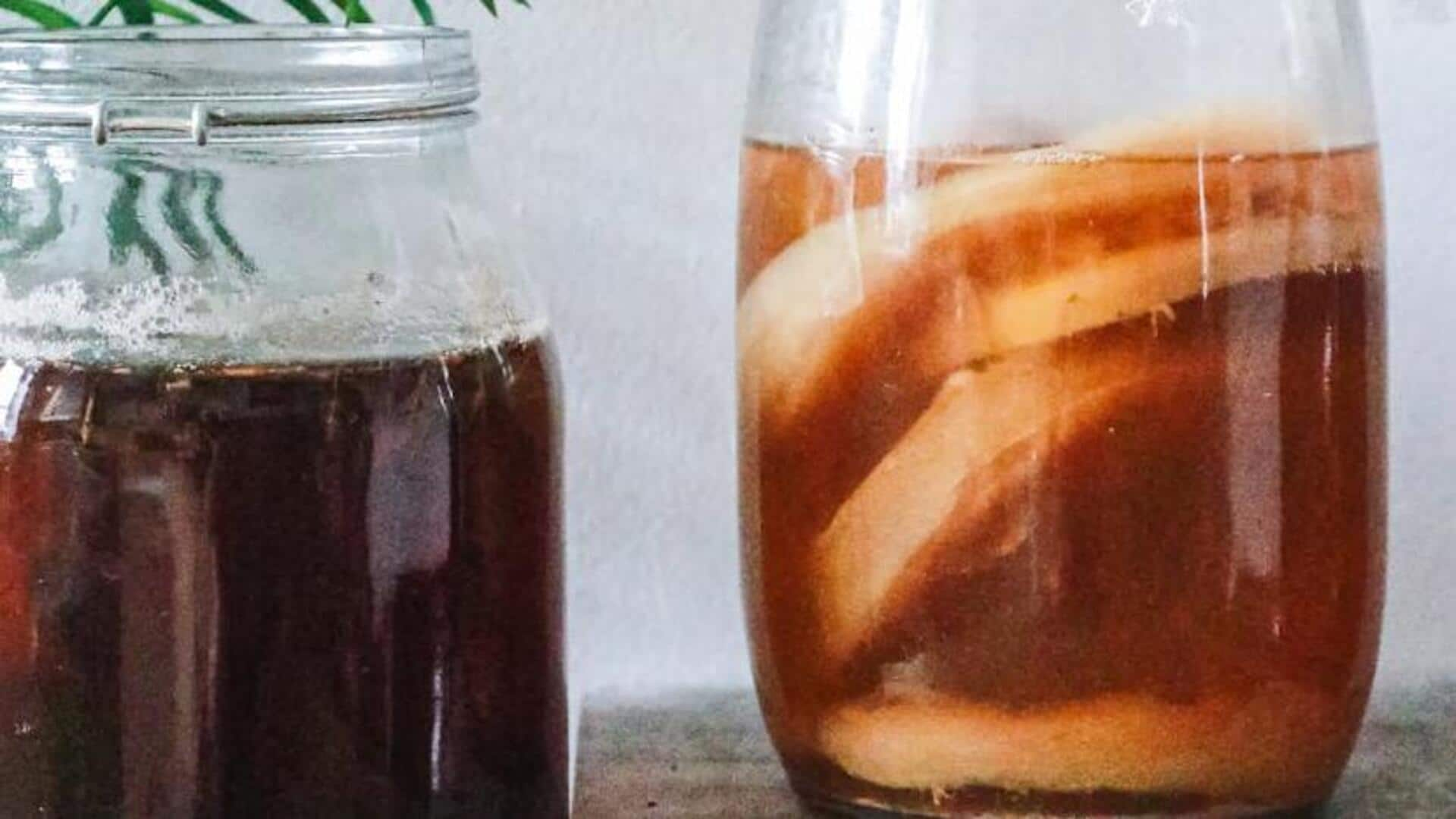
Kombucha: History, health benefits, and brewing techniques
What's the story
Kombucha, the fizzy fermented tea, has become a favorite for its tangy taste and health benefits. Hailing from Northeast China around 220 B.C., kombucha is created by fermenting tea with a symbiotic culture of bacteria and yeast (SCOBY). People love it for its probiotics, antioxidants, and as a healthier swap for sugary sodas.
History
The origins and evolution of kombucha
Kombucha's story started over two thousand years ago in ancient China, where it was highly valued for its healing properties. It then migrated across continents via trade routes, reaching Russia and Eastern Europe. And, in the 20th century, kombucha arrived in the US, where it gradually transformed from a homebrewed novelty to a commercially produced drink now widely available in health food stores.
DIY brewing
Brewing your own kombucha at home
Brewing kombucha at home is a simple and affordable way to enjoy this probiotic-rich drink. You just need tea (black or green), sugar, water, and a SCOBY. Once you've combined everything in a jar, it ferments for seven to 14 days. The best part is you can get creative with flavors by adding fruits or herbs during the second fermentation.
Wellness
Health benefits: Beyond just gut health
Kombucha is a probiotic-rich drink, thanks to the fermentation process it undergoes. Probiotics are beneficial bacteria that support a healthy gut. Plus, kombucha is packed with antioxidants that combat harmful free radicals in your body. And, research indicates that drinking kombucha can help regulate cholesterol levels and control blood sugar.
Shopping guide
Navigating commercial kombuchas: What to look for
When buying kombucha in stores, it's important to read labels carefully. Choose options with low sugar content and free from artificial flavors or preservatives. Going organic ensures that the tea was grown without synthetic pesticides or fertilizers. Also, keep in mind that some commercial kombuchas are pasteurized, which kills off the beneficial bacteria.
Culinary tips
Creative ways to incorporate kombucha into your diet
Turns out, there are more ways to enjoy kombucha than just sipping it straight from the bottle. Use it as a base for a tangy salad dressing or as a marinade for vegetables before roasting them. And, if you're a fan of smoothies or mocktails, adding kombucha can bring a fun fizziness and depth of flavor to your drinks.